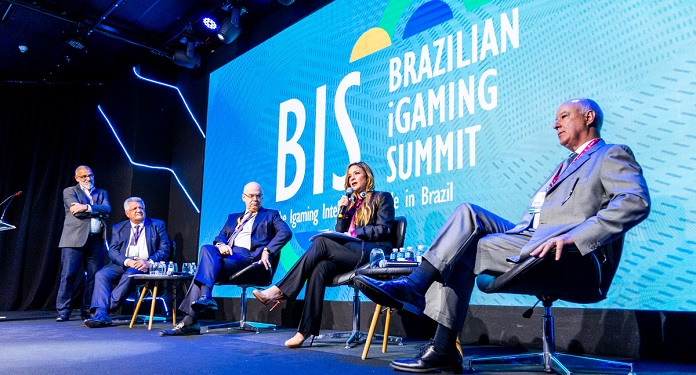The second day of the Brazilian iGaming Summit (BiS) 2022, the biggest betting event in Brazil, brought numerous debates relevant to the current scenario of the betting industry. The agenda featured panels focused on gambling regulation, payment methods and financial alternatives for the iGaming sector.
The first day of BiS 2022 featured a program full of content and important debates (check out the full story here), reinforcing the position of the Brazilian iGaming Summit as one of the main fairs on the global calendar.
The iGaming Brazil portal continued with its wide coverage of the event, bringing essential information for the iGaming segment at a national and international level, check it out:
Key highlights of the first panels of the second day of BiS 2022
Panel – Updates and progress of Regulation in the Government
The first lecture of the day was given by Iuri Ribeiro da Silva e Castro (Undersecretary of Advocacy for Competition and Competitiveness). He is part of the Ministry of Economy and has brought important updates on the regulation of games in the Government. “Every day we work to the best of our ability to support regulation.”
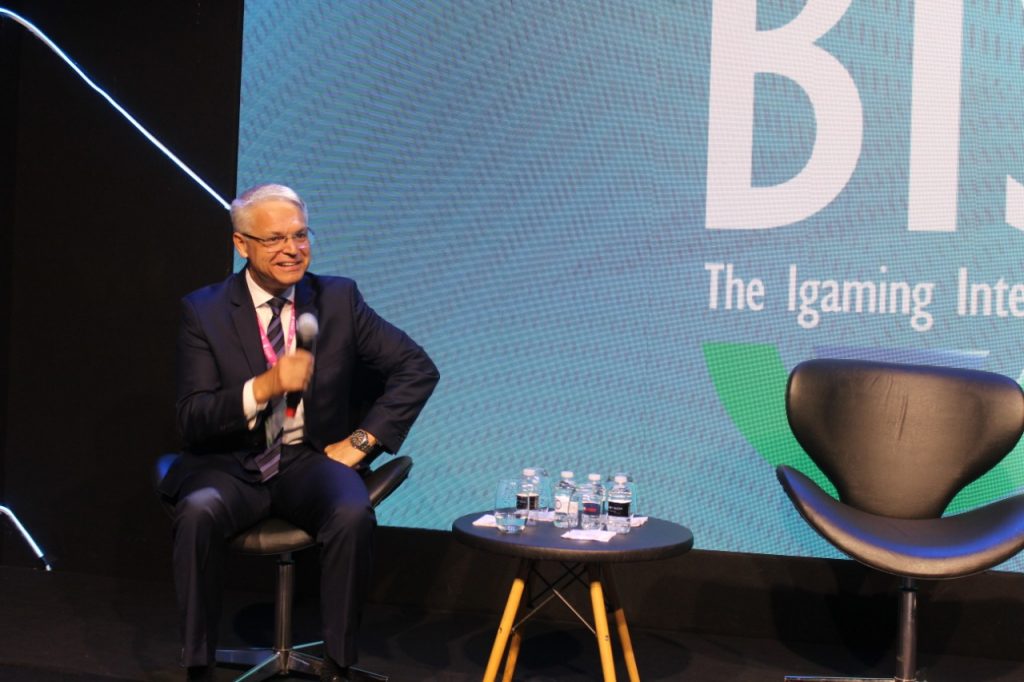
The undersecretary stressed that the decree to regulate fixed-odds betting is in the evaluation phase, with the expectation of presidential sanction. “We are studying the regulations of different jurisdictions and seeking the best global practices in the sport. We are using these regulations as references and with this search for the best practices, apply them in our regulation”.
In addition, the speaker mentioned that the process is based on the construction of ‘macroprocesses’. “After that, we studied the Brazilian legislation and tried to understand how to use it in a relevant way. We are working on the construction of regulations and designing and building the macro-processes. We are focused on the future operation of the regulated market”.
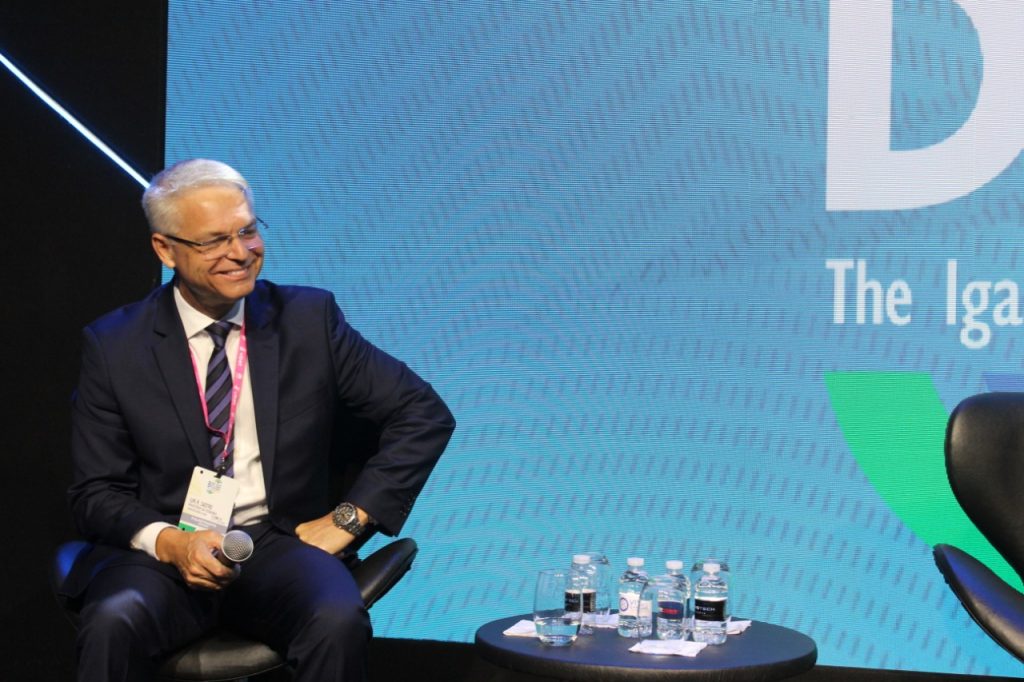
Iuri Ribeiro da Silva e Castro admitted that he would like to have the ordinance in hand to present the BiS 2022 to the public, but that the moment is for study and must follow a schedule until official regulations are reached.
Panel – Regulation and the positive impacts for Brazil
The second panel was moderated by Magnho José (President of the Instituto Brasil Jogo Legal – IJL and Editor of BNLDATA), and participation by Bacelar (Federal Deputy and Coordinator of the Parliamentary Front for the Approval of the Marco Reg. , Daniel Homem de Carvalho (President Special Commission on Sports, Lottery and Entertainment Law of the National Bar Association), Karen Sierra-Hughes (Vice President Latin America and El Caribe – GLI) and federal deputy Herculano Passos.
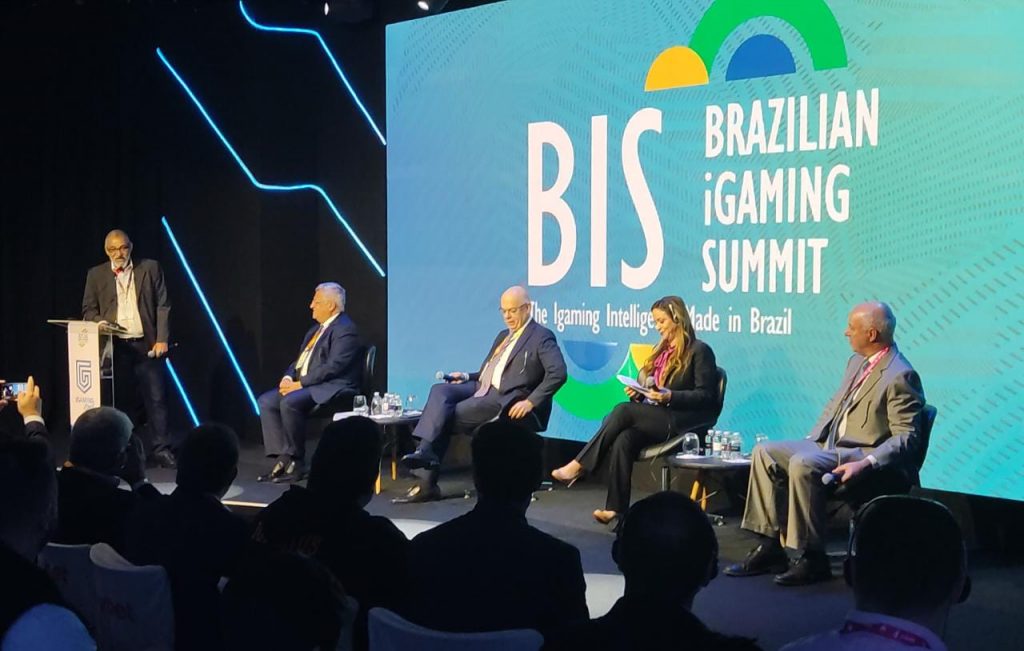
“In the last 30 years, a project was presented at the Chamber legalizing the animal game. This project was stopped and several others were presented, due to ignorance and strong religious resistance”, emphasized Bacelar, who traced a history of the process that took place for the emergence of the Regulatory Framework for Gambling.
“In 2015, the segment is lucky to coincide with the election of several deputies who begin to demand an articulation in favor of the games”, talking about several scenarios that can follow the project in the Senate, being the presidential approval and sanction, the replacement for a new project or the rejection of the proposal.
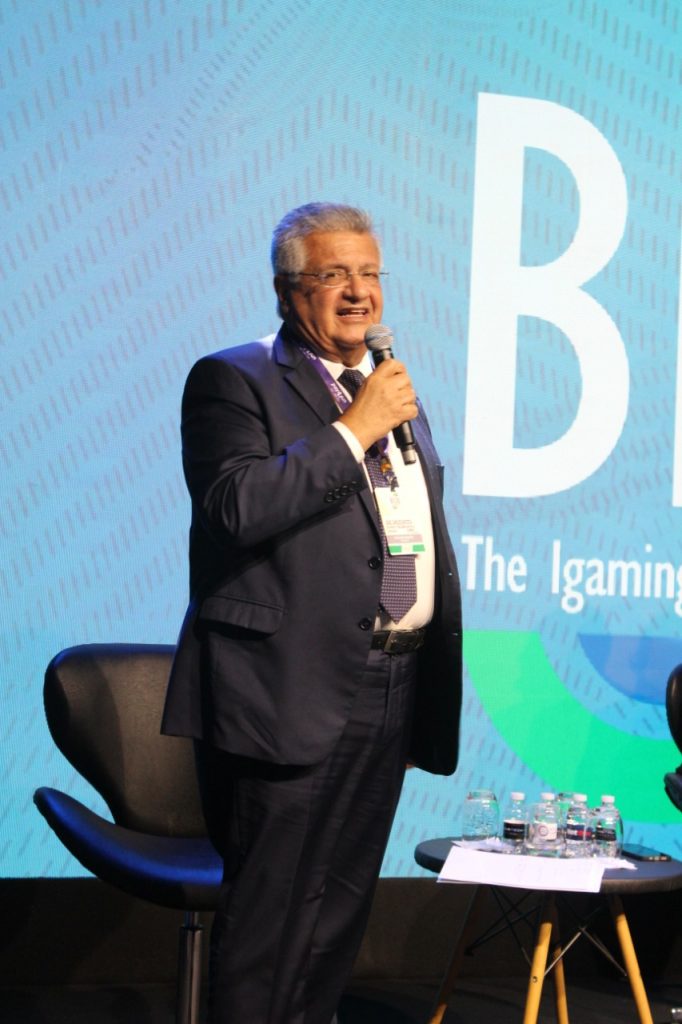
However, the deputy does not believe that this is the right moment for the Senate to consider the agenda. “But this is not the moment for the Senate to vote on the matter” because “soon we will have the renewal of a third of the Senate and the process will need presidential sanction and in this election year, it is difficult to approve this matter that requires a lot of political courage” .
Another member of Congress, deputy Herculano Passos, stressed that Brazil is losing revenue due to the lack of regulation for the gaming industry. “Only Brazil, which is predominantly Christian, does not have legal gambling. Brazil is late and this is the moment.”
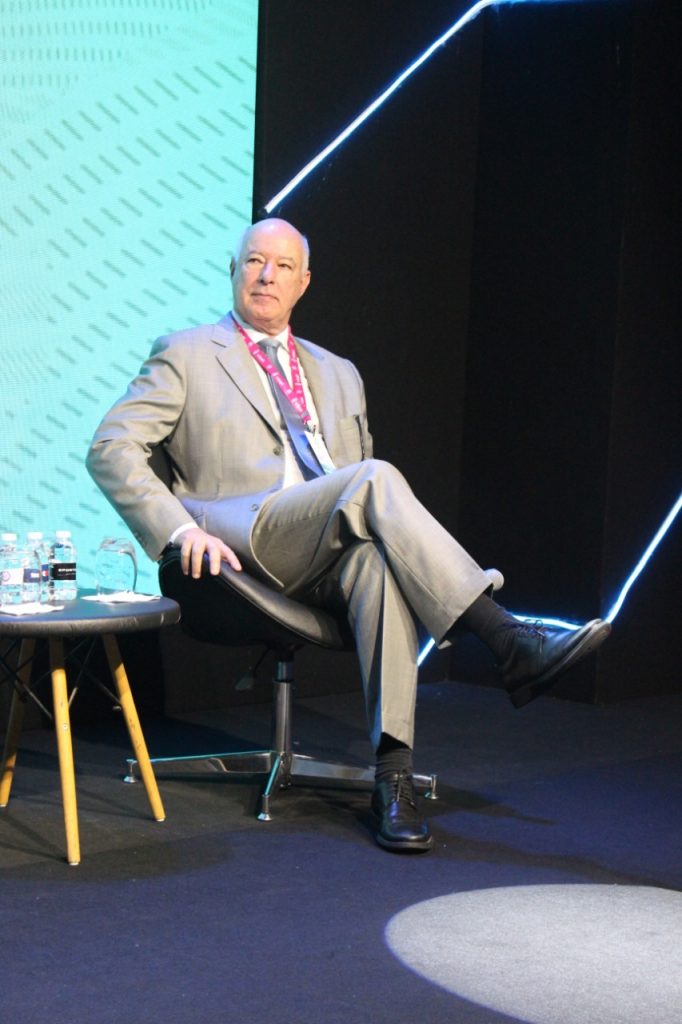
According to the federal deputy, the release could make all the difference for the country. “If it is not vetoed, it will be much better for Brazil and Brazilians, to generate employment and all taxes are already well underway and defined”.
While Daniel Homem de Carvalho made a point of mentioning the importance of events such as BiS 2022. “When we see this group of people here at the event, we believe that the market is growing”, but warned: “The state does not admit competition and it has taken care of of game exploration. Our idea is to follow this regulation, the OAB has institutional conditions for this”.

Carvalho revealed that the Order’s intention is to participate in the entire process in order to help in the elaboration of fair rules. “Our idea is to actively participate in this project, suggesting and hand in hand with the state councils. We intend, together with the state, together with state Oabs, the market and regulators, to make the best possible regulation”.
Karen Sierra-Hughes added her international view of the industry to the debate. She noted that Brazil has a unique and historic opportunity: “This is an important opportunity and we must seize it, Brazil must take care of the industry, the regulators, etc.”
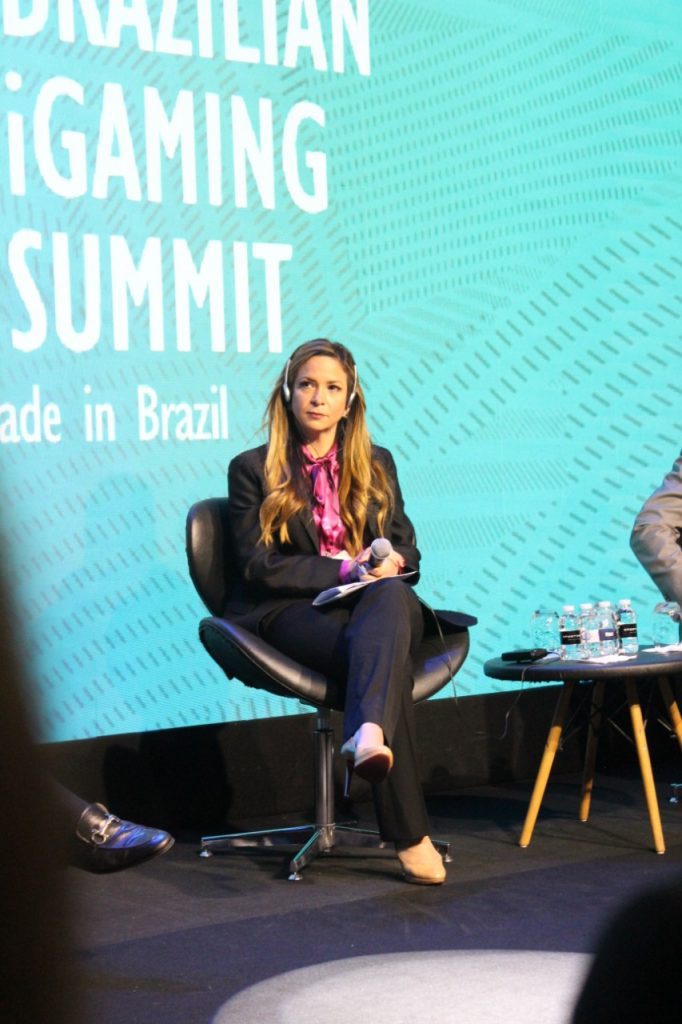
“We must think about the problems that may arise. We need a complete law, a robust, clear and effective law, but assessing the social and economic impacts that regulation can bring to the country”, he added.
For Karen, the economic and cultural reality in Brazil is very different from one region to another and these aspects need to be considered. “I see many Brazilians who have not yet had the opportunity to live in a jurisdiction where gambling is regulated and is an essential part of the country’s economy, generating resources for the government and social causes.” And, he concluded: “the gaming industry is an entertainment industry”.
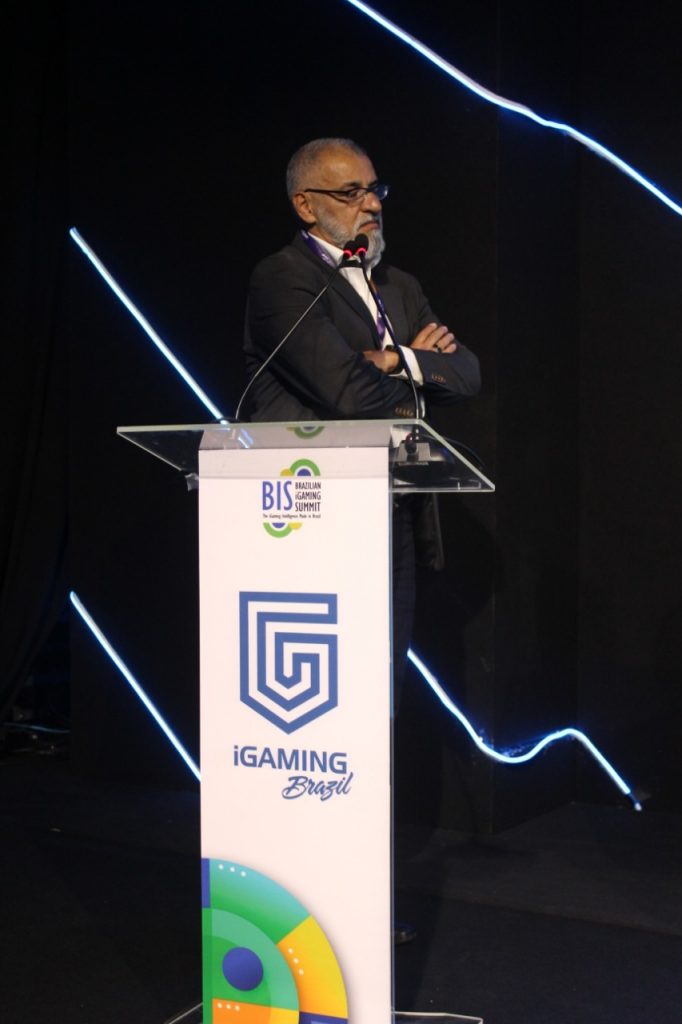
Panel – The means of payment available in Brazil in the view of Operators
The third debate this Wednesday generated interesting analyzes about the means of payment available in Brazil, an essential aspect for bookmakers in the national market. The panel was moderated by Ari Célia (Advisor and Board Member at Pay4Fun), and included Fernando Garita (Director of Business Development at Bectris), Filippos Antonopoulos (CEO at Okto) and Thomas Carvalhaes (Regional Director at VDB).
Ari Célia opened the panel with a question: “Would payment methods be the operator’s main partner in the Brazilian market? Even with the lack of a regulated gaming market, do we have such an advanced payment method? How do payment methods help operators in this scenario?”.
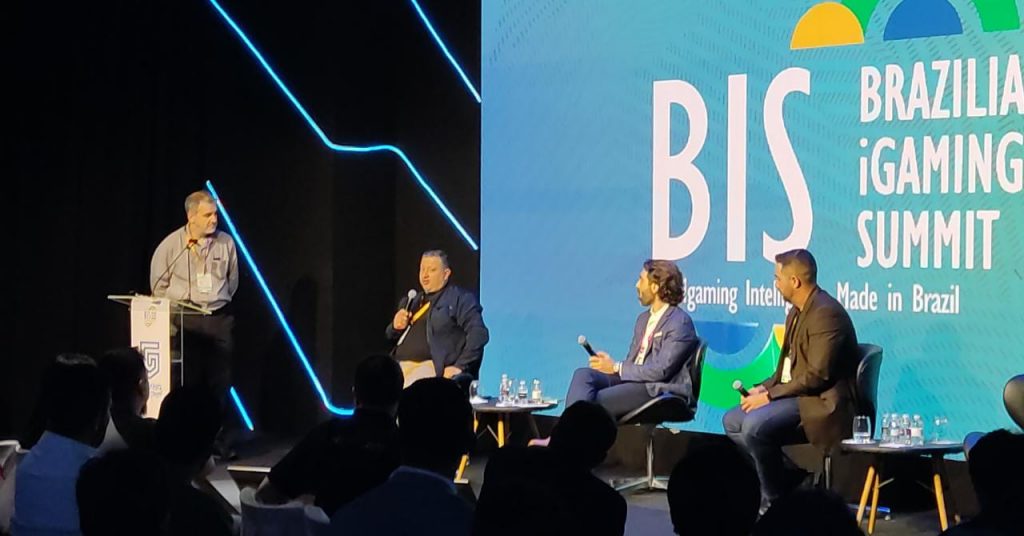
Thomas Carvalhaes pointed out that “payment methods are, lately, having to reinvent and restructure to be able to help operators more and more”.
For Filippos Antonopoulos, “the operation of the game has something different, because people pay and receive, and the issue of payout is always more difficult to align”.
While Fernando Garita stated: “in this challenge of paying fast, using the most reliable payment methods will be better and more effective, in addition to being faster and safer”.
User relationship
Carvalhaes emphasized that it is necessary to be “selective when choosing payment methods in Brazil, because it is important to know the culture and the payment process. On the user side, this is a situation of a little conflict for me, because each site has a compliance. But one way to mitigate several verification steps is to encourage with extra bonuses, free bets, because it is something that has to be done and that would encourage the user in a positive way.”

Garita also highlighted that “the user wants to be paid quickly and the best method is to guarantee this. If we have any delay or delay in payment, we have to have some alternatives to compensate for this, otherwise we lose the user’s trust”.
The CEO at Okto explained that the company’s approach “is to incorporate payment methods, user experience into the game environment, website and operator platform. We also have to have an operational work.” He mentioned the issue of direct service with the user and operator, using people and encouraging a great work of consumer service.
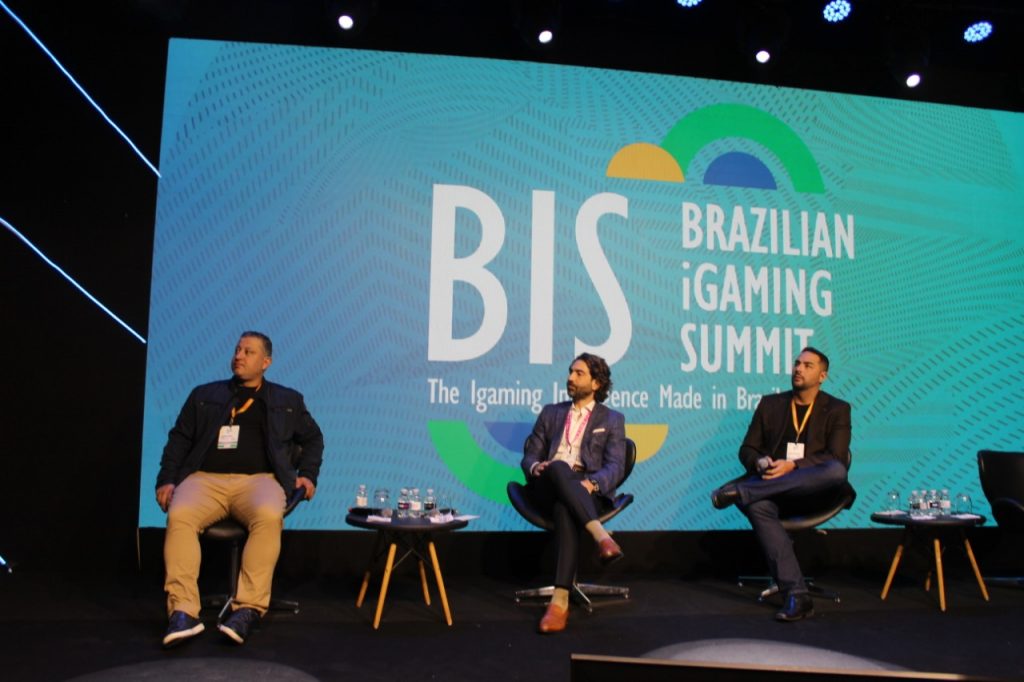
Professionals also noted that it is essential to find an appropriate payment method for each region, bearing in mind cultural differences. Antonopoulos stressed that the challenge also occurs in Europe and other regions, including conditions such as transaction speed and bank flags that can end up blocking some transfers.
Panel – Financial alternatives for the iGaming sector: Crypto, e-wallets, NFT, Tokens, etc.
The fourth roundtable of this first part of the second day of the event presented insights into the existing financial alternatives for the iGaming sector, which in recent years is expanding into several different methods. Fernando Gonçalves (lawyer) moderated the conversation, which included Fábio Tibéria (Business Developer at FT Consulting), João Canhada (CEO at FoxBit) and Nick Rupe (Financial Manager at Pay4Fun).
João Canhada said that FoxBit was responsible for 12 billion in crypto transactions last year. “As a means of payment, cryptos are quite important to the scenario, because of their speed and effectiveness. In some sectors, crypto can be considered as a gray zone, which is not considered prohibited.”

Lawyer Fernando Gonçalves addressed the growth of the crypto market, going through large payment methods and other forms of market expansion in general.
Fabio Tiberia, on the other hand, revealed that “the average cost of a company for the crypto transaction is 0.07%, while on Pix it is 5%. With blockchain, Bitcoin technology and cryptos, we have guaranteed security in transactions”, but highlighted: “ we need to know how to manage this technology. A primordial technology, Bitcoin is a ‘baby’. We still have a long way to go and this technology is our future.”

Nick Rupe, in turn, listed points for this segment to fall even more in people’s taste. “For this to be more popular with people, our role as a means of payment is to invite people to see the comfort of operating with cryptocurrency. Bringing comfort and security is the key to bringing more people to crypto.”
Canhada closed the conversation with an interesting projection: “By 2030, everyone will look back and try to understand the generation that traded currencies and physical money. We are experiencing a change in the separation of state and money. This is what is happening in the information age.” .
































